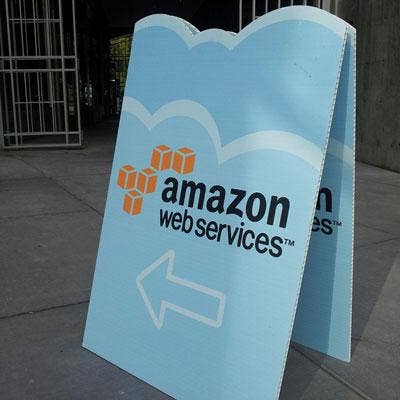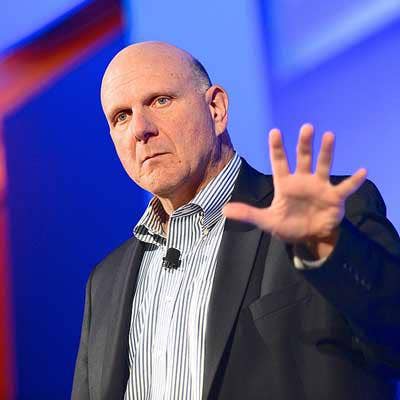10 Software Industry Predictions For 2014

Reading The Tea Leaves
Predicting how things will turn out in the enterprise technology business is mostly guesswork. But when it comes to software, whether it's on premise or in the cloud, there are some clear trends that make the task a little bit easier.
We know, for example, that enterprise software vendors are going to have Amazon on the brain, and that Oracle and SAP are going to continue their Hatfields and McCoys relationship. We know big data startups are going to continue to be targets for acquisition, as well as IPO candidates. And we know virtual desktops are going to be talked about a lot, even if that talk doesn't necessarily equate to sales.
The list of what's unclear about how things will unfold in 2014 in the software business is much larger, of course. Here, CRN presents our picks for how we think things will shake out.

10. VMware's vCloud Hybrid Service Gets More Sophisticated
VMware launched its public cloud in May, but vCloud Hybrid Service hasn't attracted anywhere near the number of customers as the vendor expected, according to partners.
According to partners, VMware's approach of "if we build it, they will come" hasn't translated into as many customers as VMware expected. The main issue is that vCHS -- known in the VMware channel as "vee-cheese" -- is a pretty basic infrastructure-as-a-service with little added value. Many enterprises want more than just a way to forklift their on-premise infrastructure into the public cloud, VMware partners tell CRN.
VMware's response will be to add desktops-as-a-service and disaster recovery-as-a-service on the vCHS cloud. VMware will also roll out a per-VM per-hour pricing option because that's where the IaaS market seems to be heading. Deeper integration with Pivotal's platform-as-a-service could also be in the cards for 2014 as VMware looks to spice up its raw IaaS offering.

9. More Enterprise Vendors Will Partner With Amazon
While many enterprise vendors are trying to compete with Amazon, NetApp has decided its best course of action is to partner with the public cloud's most dominant player. This year, more enterprise vendors, including ones that aren't storage-focused, will find ways to work with Amazon where it makes sense for them to do so.
NetApp partnered with Amazon last November to integrate its storage hardware with the AWS cloud, allowing data and workloads to pass securely back and forth from private clouds. Avnet is handling pricing and distribution of the hardware, and partners have to get certified with both AWS and NetApp in order to sell products. Details on the next phase of that partnership should also be revealed in the coming months, sources tell CRN.

8. Big Data IPOs, Acquisitions
The sizzling big data space will see IPOs and acquisitions in the coming year, and the big Hadoop players will be leading the charge. Cloudera in June hired former ArcSight CEO Tom Reilly, who led that vendor's IPO and subsequent $1.5 billion sale to HP, and it's raised more than $140 million in venture capital to date.
Hortonworks, which has raised nearly $100 million, said in August that it would seek an IPO within 15 to 24 months. MapR, a rival of both vendors, has also made noises about an IPO, though it probably won't happen this year.
In the meantime, enterprise giants continue to assemble their own big data product portfolios, and it's a good bet they'll be looking to acquire smaller, early-stage big data startups to fill in the gaps.

7. Oracle Will Get More Channel Friendly
Oracle isn't a company known for channel harmony, and its famously aggressive sales force is one reason why. But Oracle spent 2013 making a number of key hires and management changes that have its partners optimistic for the coming year.
Oracle hired former VMware and HP channel executive Rich Geraffo as channel chief in October, a few months after bringing on Mitch Breen (pictured), a 20-year EMC veteran, to oversee direct sales for hardware.
At the same time, Oracle parted ways with longtime sales executives like Keith Block and Anthony Fernicola, who weren't known for being particularly channel friendly. Matt Mills, who replaced Block as senior vice president of North America sales, has changed Oracle's channel outlook for the better by protecting channel deals from being taken direct by Oracle reps, sources told CRN in September.

6. HP's Autonomy Deal Starts To Look Better
HP's $11 billion-plus acquisition of Autonomy in 2011 looked like one of the worst moves in the company's history. But HP started making use of the technology in 2013 and it'll continue to serve an important role in the vendor's big data plans in the coming year.
Autonomy is part of HP's Haven business analytics portfolio, which also includes the vendor's Hadoop, Vertica and Enterprise Security products. After launching Haven last June, HP said in September that more than 120 partners had signed up to sell at least one piece of the portfolio.
In December, Avnet, Wipro Limited and other top partners launched their own Haven-based products.
HP still overpaid by a lot for Autonomy, but at least it's getting some value out of it as one of the few vendors that has managed to bring big data to the channel.

5. IBM's Amazon-Bashing Cloud Campaign Will Help Amazon
In November, after losing a court battle with Amazon over a $600 million cloud deal for the CIA, IBM dropped the gloves and tried to turn this competition into a street fight. By launching a print and outdoor media advertising campaign focused on Amazon's shortcomings, IBM was trying to get rid of what it believes are misconceptions about how great Amazon's cloud is.
From the get-go, enterprise channel partners (mostly ones that don't partner with IBM) scoffed at IBM's campaign. Some partners predicted the campaign would actually benefit Amazon by drawing more attention to its cloud. While that will be tough to measure, it's a safe bet that IBM's marketing tantrum won't resonate with customers that like Amazon because it's so refreshingly different from old guard enterprise tech companies.

4. Oracle Will Keeping Sniping At SAP's HANA In-Memory Database
SAP's HANA in-memory database is selling like hotcakes, and last year SAP co-CEO Bill McDermott called it "the fastest-growing software product in the history of the world."
Well, Oracle CEO Larry Ellison (pictured) and COO Mark Hurd have been trashing SAP HANA every chance they get, claiming it doesn't even come close to the cloud-tailored Oracle 12c database. SAP is now going after open source developers with SAP River, a cloud-based development environment for building apps that run on SAP HANA.
Expect lots more verbal tussling between the two vendors as one of the industry's oldest rivalries continues to create entertaining friction.

3. Some Companies Will Keep Using Windows XP
Hey, have you heard Microsoft is cutting off support for Windows XP in April 2014? Microsoft has actually been warning customers about this deadline for years, but for a variety of reasons -- including the fact that XP was so well designed -- many organizations are still running the 12-plus-year-old operating system.
There's no doubt that some will remain on XP even after Microsoft stops releasing security patches. Most of these will be smaller companies, but even in larger ones there are likely to be pockets of XP machines still chugging along after the deadline. As a result, Microsoft's OS edition of "Weekend At Bernie's" will continue to have life.

2. Desktop-As-A-Service Pricing Battles
Virtual desktops have been long on promise but short on popularity, but that's going to change this year now that Amazon Web Services has entered the space. Amazon in November unveiled Workspaces, a virtual desktop service priced from $35 to $60 per user per month.
As has been widely noted, that price isn't such a great bargain, but you just know that AWS will be shaving costs here and there and benevolently passing along those savings to customers, as it enjoys describing it.
For VMware, which bought Desktone in October and hired former SAP executive Sanjay Poonen to run its end-user computing business, the stage is set for a new front of competition with AWS. We're expecting Amazon's presence in the market to lead to aggressive pricing from VMware and other players that are ready to do whatever it takes to keep the public cloud's Great White Shark at bay.

1. Microsoft Names Unexpected CEO
Microsoft says it will pick a new CEO in early 2014, and we're saying here that the choice is going to surprise a lot of people.
For months after Steve Ballmer (pictured) announced he was leaving Microsoft in August, there were a handful of CEO candidates popularly considered to be frontrunners for the post. Ford CEO Alan Mulally appeared to have the job wrapped up until December rolled around, but then Ford's top brass indicated he would be staying. Nokia CEO Stephen Elop has also been in the rumor mix, as have Microsoft insiders like Satya Nadella and Tony Bates.
But increasingly, it's looking like Microsoft is going to pick a CEO that no one is expecting. At least, that's a conclusion could be drawn by the drama that unfolded in mid-December, when Bloomberg reported that Microsoft was talking to Qualcomm COO Steve Mollenkopf, a 19-year company veteran who was second in command to CEO Paul Jacobs, and Qualcomm turned around and appointed Mollenkopf CEO the very next day.